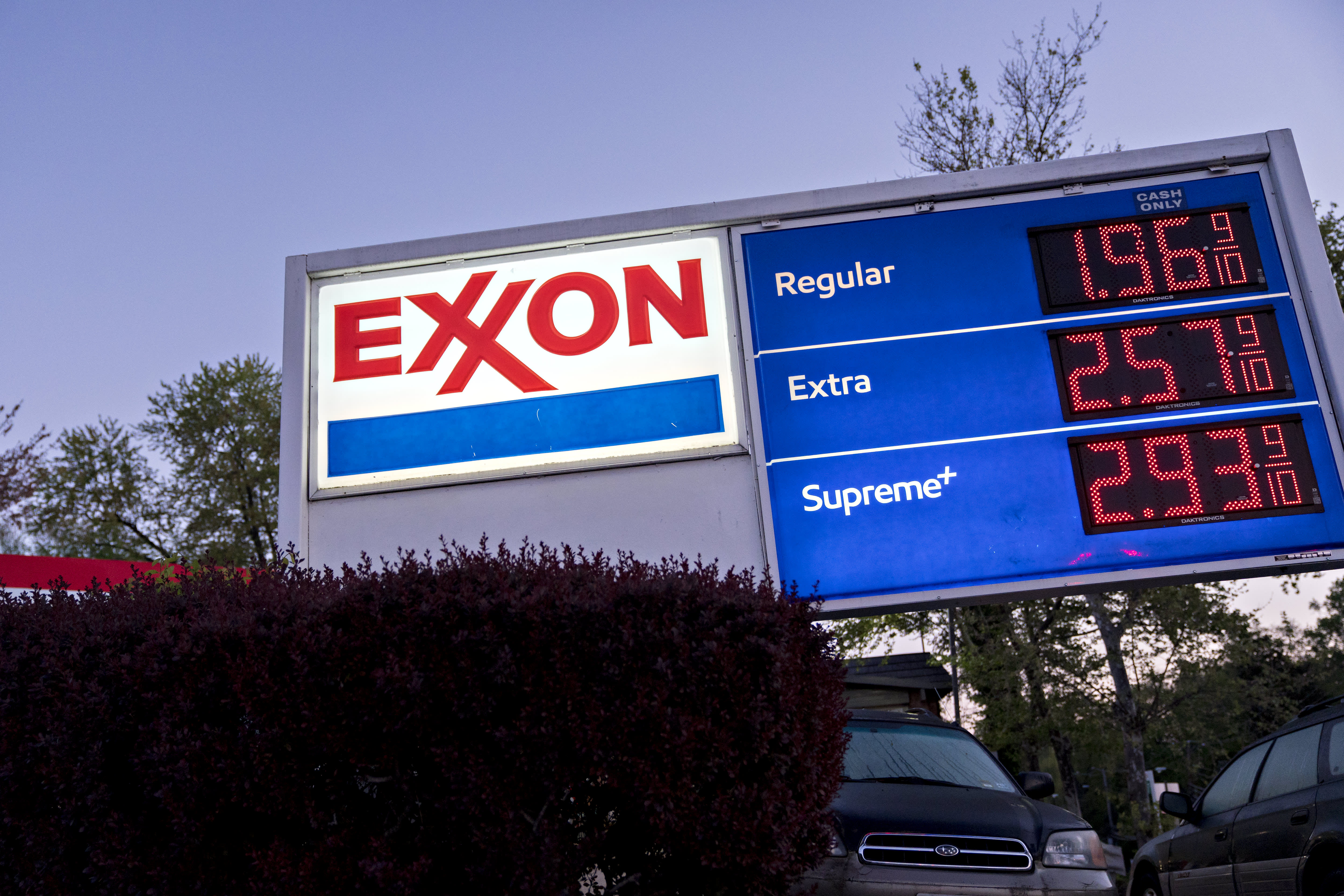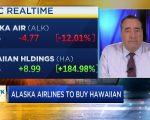
Exxon Mobil‘s third-quarter profit declined compared with last year when the oil giant put up record numbers as oil prices soared, but net income jumped 15% compared with the previous quarter. It also raised its quarterly dividend.
Those lofty crude prices have fueled a shopping spree this year as Exxon acquired pipeline operator Denbury, the beneficiary of changes in U.S. climate policy, for $4.9 billion in July, and then a few weeks ago the company said that it would buy Pioneer for $60 billion.
Exxon isn’t alone. Earlier this week, Chevron said it would spend more than $50 billion to acquire Hess.
Exxon Mobil Corp. earned $9.07 billion, or $2.25 per share in the period. That compares with $19.66 billion, or $4.68 per share, a year earlier.
Removing certain items, earnings were $2.27 per share.
Analysts polled by Zacks Investment Research predicted higher earnings of $2.36 per share, but Exxon does not adjust its reported results based on one-time events such as asset sales as most companies do.
Revenue slipped to $90.76 billion from $112.07 billion, but still topped Wall Street’s estimate of $89.29 billion.
Production dipped 0.8% to 3,688 thousand oil-equivalent barrels per day.
Exxon said Friday that it delivered its best ever third-quarter global refinery throughput at 4.2 million barrels per day.
“We delivered another quarter of strong operational performance, earnings and cash flows, adding nearly 80,000 net oil-equivalent barrels per day to support global supply,” Chairman and CEO Darren Woods said in a prepared statement.
Exxon’s results come just a few weeks after announcing that it would acquire Pioneer Natural Resources for nearly $60 billion. It’s the company’s largest buyout since acquiring Mobil two decades ago. The deal with Pioneer Natural vastly expands Exxon’s presence in the Permian Basin, a massive oilfield that straddles the border between Texas and New Mexico.
Exxon is flush with cash. The company posted unprecedented profits last year of $55.7 billion, breezing past its previous record of $45.22 billion in 2008 when oil prices hit record highs.
Elevated levels of cash for all big producers are driving a massive consolidation in the energy sector. Just this week, Chevron said it would buy Hess Corp. for $53 billion.
Chevron also reported its quarterly results on Friday. The San Ramon, California, company posted a third-quarter profit of $6.53 billion, or $3.48 per share. Earnings, adjusted for pretax gains, came to $3.05 per share.
Wall Street was calling for earnings of $3.68 per share, but – like Exxon – Chevron does not adjust its reported results based on one-time events such as asset sales.
Overseas production was down 112,000 barrels per day from a year ago. The company said that this was mostly due to higher impacts from turnarounds, shutdowns and normal field declines.
Chevron’s quarterly revenue totaled $54.08 billion, coming in above the $54 billion analysts expected.
Crude prices rose sharply in early 2022 with Russia’s invasion of Ukraine and are hovering around $90 per barrel after ticking another 9% higher this year. That has made big drillers cash rich and they are looking for places to invest.
Oil markets are being stretched by cutbacks in oil production from Saudi Arabia and Russia, and now, a war between Israel and Hamas runs the risk of igniting a broader conflict in the Middle East. While attacks on Israel do not disrupt global oil supply, according to an analysis by the U.S Energy Information Administration, “they raise the potential for oil supply disruptions and higher oil prices.”
The industry is likely to keep a close eye on events in the Middle East which continue to escalate, as Israeli forces backed by fighter jets and drones carried out a ground raid into Gaza and U.S. warplanes struck targets in eastern Syria on Friday.
Exxon also announced Friday that it raised its fourth-quarter dividend to 95 cents per share from 91 cents per share.
Exxon shares are up slightly before the open bell, while shares of Chevron are down more than 2%.







